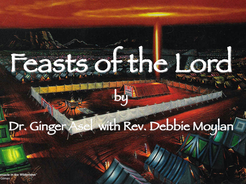 This session concludes our study on the Feast of Tabernacles and the Feasts of the Lord as a whole. We will be exploring the antitypical meaning of the Feast of Tabernacles and also give an overview of the overall connectedness of the seven Feasts. Other Scriptures that will be explored are: John 7; Isaiah 11 & 65:17-25. Let us remember that:God has a plan, God has a purpose God has everything under control. Click here to watch.
0 Comments
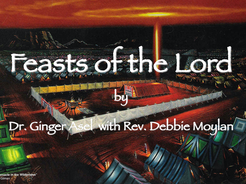 This teaching is on Sukkot – The Feast of Tabernacles. Zechariah 14 foretells the second coming of the Lord and some events following his return. Why is the Feast of Tabernacles mentioned three times at the conclusion of Zechariah’s prophetic word? Join us and discover the answer. Click here for video teaching. 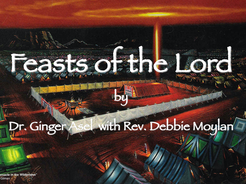 The New Testament is in the Old Testament contained. The Old Testament is in the New Testament explained. This is particularly true with the Day of Atonement. Last week, in part one of the Day of Atonement, we dealt with some difficult questions. One of the queries was, “Why was the detailed account of the Day of Atonement introduced with the death of Aaron’s sons Nadab and Abihu when they offered unauthorized fire before the Lord?” This week we ask, “How was Aaron to enter the Most Holy Place so that he might not die? Why did the writer of the book of Hebrews record, ‘Behind the second curtain was a room called the Most Holy Place, which had the golden altar of incense and the gold-covered Ark of the Covenant.’ (Heb. 9:3-4 NIV)? Was this a mistake or a clue to the antitypical meaning of the Day of Atonement?” If you desire the answers to these questions and much more concerning the truths behind this Most Holy Day tune in to this study. (Scriptures: Leviticus 16; Hebrews 8-10). Click here to watch. 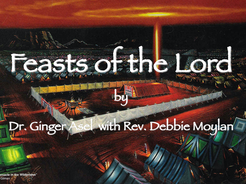 The most holy day of the Jewish Feast days is the Day of Atonement. The detailed account of this Feast is found in Leviticus 16. It begins with a reference to the death of the two sons of Aaron (Leviticus 10). We know that , "All Scripture is breathed out by God and profitable for teaching, for reproof, for correction, and for training in righteousness, that the man of God1 may be complete, equipped for every good work." (2Timothy 3:16-17 ESV). Therefore it is necessary for us to ask and answer some hard questions. Why were Nadab and Abihu killed? Were they not just being enthusiastic worshippers of God? Why does their death serve as an introduction to the Day of Atonement? Are there lessons for us to learn from their experience? Join us as we attempt to address these questions and others.Click here to watch this teaching. (Premieres August 18, 2020) 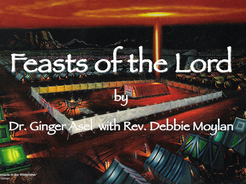 What prophetic words are hidden in the Fall Feasts? Why does Rosh Hashanah – the Jewish New Year- begin the 7th month of their calendar? Does the Word of God shed light on the answer to these questions? Join us HERE for the 6th session on the Feasts of the Lord to consider these questions. To prepare in advance, please read: Leviticus 23:23-25; Numbers 10:1-10. 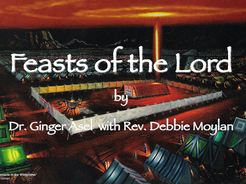 The Feast of Weeks begins and ends with First Fruits celebrations. The Feast of Pentecost concludes the Spring Feasts What is the spiritual significance of this First Fruit Feast? Was there more to its antitypical meaning than the outpouring of the Holy Spirit? What happened when the day of Pentecost was fully come? Watch the video here. To help prepare for the study read Leviticus 23:15-22 and all of Acts 2 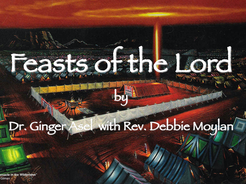 It is important to apply the teachings in the Word of God to our lives. Session #4 on the Feasts of the Lord will give us new insights into the power and purpose of Christ’s Resurrection in the life of the believer. Click here to watch the video. 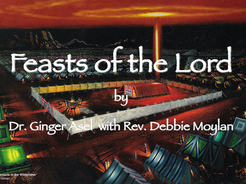 How did the OT priest celebrate the Feast of First Fruit? Is there any significance in the offerings that were made? Can we glean spiritual lessons from these OT observations of this special Jewish Holy Day to help us worship today? Join us here and see. (Premieres July 21, 2020) 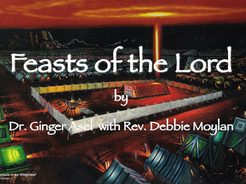 Passover is the first of the seven Feasts of the Lord. Our Hebrew friends celebrate this feast each year. Is it important for believers to understand its full meaning? How and why did the first and second Feasts become regarded as one? Does the Feast of Unleavened Bread have any significance for Christian believers today? These are some of the questions that we will be addressing in the second session on the Feasts of the Lord. Watch the video here. (Premiered July 14, 2020) 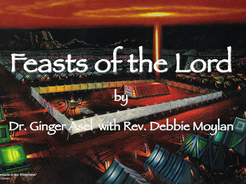 Why did God give Moses seven Feasts or Festivals for the Jewish people to celebrate? Should we as Christians study the Feasts? Was it just a coincidence that three of the Feasts were actually fulfilled in the New Testament as they were being commemorated? Do the Feasts really have prophetic significance and if so, what truths are they relating? Watch the video here. (premieres July 7, 2020) |
FILE DOWNLOADSChurches in Revelation Archives
March 2024
Categories |
Photo from verchmarco

 RSS Feed
RSS Feed